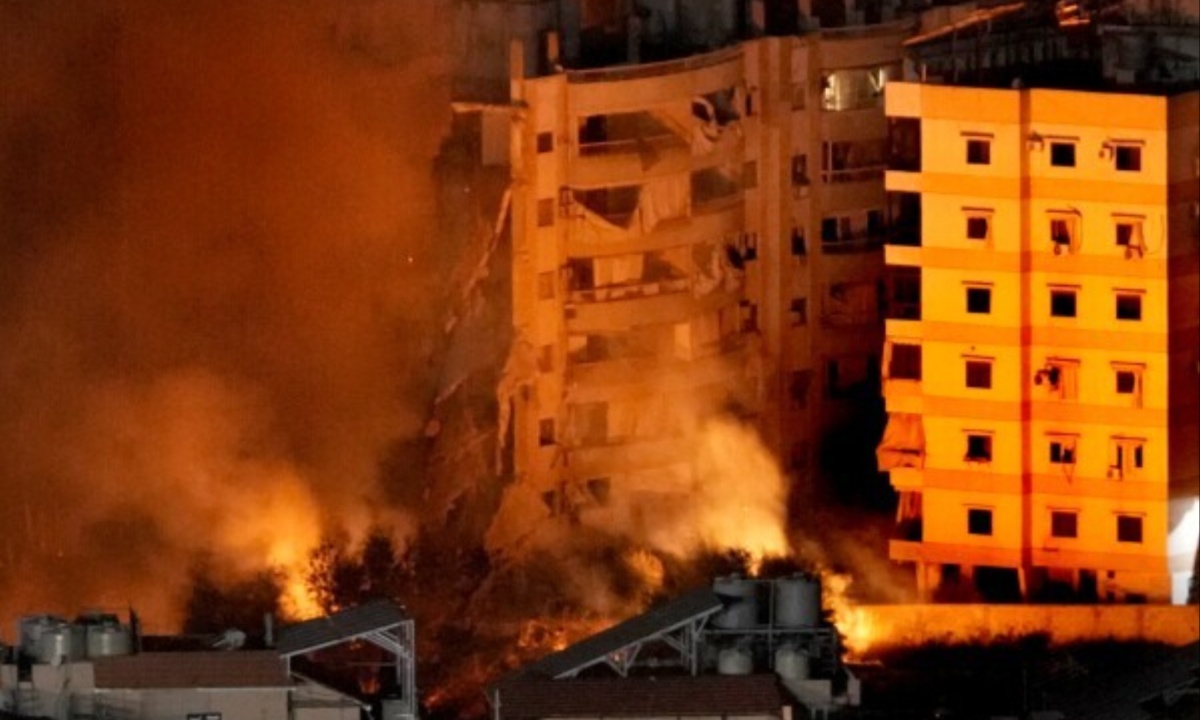Israeli airstrikes targeted several buildings in Tyre, a coastal city in southern Lebanon, on Wednesday, causing large clouds of black smoke to billow into the sky. This escalation coincided with Hezbollah’s confirmation that Hashem Safieddine, a high-ranking official in the militant group, had been killed in an earlier Israeli strike.
Local reports indicated that another Israeli attack in the nearby town of Maarakeh resulted in the deaths of three individuals, although Tyre itself did not report any casualties at the time of the strikes.
In response to the Israeli actions, Hezbollah launched a series of rocket attacks into Israel, which included two rockets that set off air raid sirens in Tel Aviv; these were ultimately intercepted by Israeli defenses.
During this period, U.S. Secretary of State Antony Blinken was in the region, attempting to mediate cease-fire discussions. The Israeli military reported that four additional projectiles crossed from Lebanon into Israel later that night, with two intercepted and one falling in an open area, again resulting in no injuries.

Israeli Airstrikes Hit Southern Lebanon as Hezbollah Retaliates After High-Ranking Official’s Death
The announcement of Safieddine’s death came shortly after Israeli sources claimed he had been targeted in a previous airstrike in Beirut. Safieddine was viewed as a significant figure within Hezbollah, and his expected succession of the group’s current leader, Hassan Nasrallah—who was killed in a recent Israeli strike—has raised concerns about leadership dynamics within the organization.
In their statement, Hezbollah expressed their sorrow, indicating that Safieddine had “joined his brother,” referring to Nasrallah.
Despite Tyre’s previous immunity to conflict, the recent strikes have raised tensions significantly. The city, known for its rich history and tourist attractions, had been advised to evacuate as Israeli forces warned residents to leave the area before the attacks.
Evacuation procedures were implemented, with civil defense teams assisting those in need, but many residents, including those displaced from other regions, chose to remain amid the escalating violence.
The humanitarian situation in Lebanon has worsened dramatically, with the Lebanese Health Ministry reporting 28 fatalities and over 139 injuries in the past day alone. The total death toll since the conflict’s escalation last year has surpassed 2,500, displacing around 1.2 million individuals.
Rescuers in Beirut continued their efforts to recover victims of past airstrikes, illustrating the severe impact of the ongoing hostilities on the civilian population.
As the situation unfolds, the broader context of the conflict remains troubling. In addition to the Israeli strikes in Lebanon, ongoing military operations in Gaza have led to severe humanitarian consequences, with the United Nations estimating that tens of thousands have fled from the northern region of Gaza.
The complex dynamics of the conflict, exacerbated by Hezbollah’s retaliation and the tragic loss of civilian lives, underscore the urgent need for diplomatic efforts to restore stability and peace in the region.
